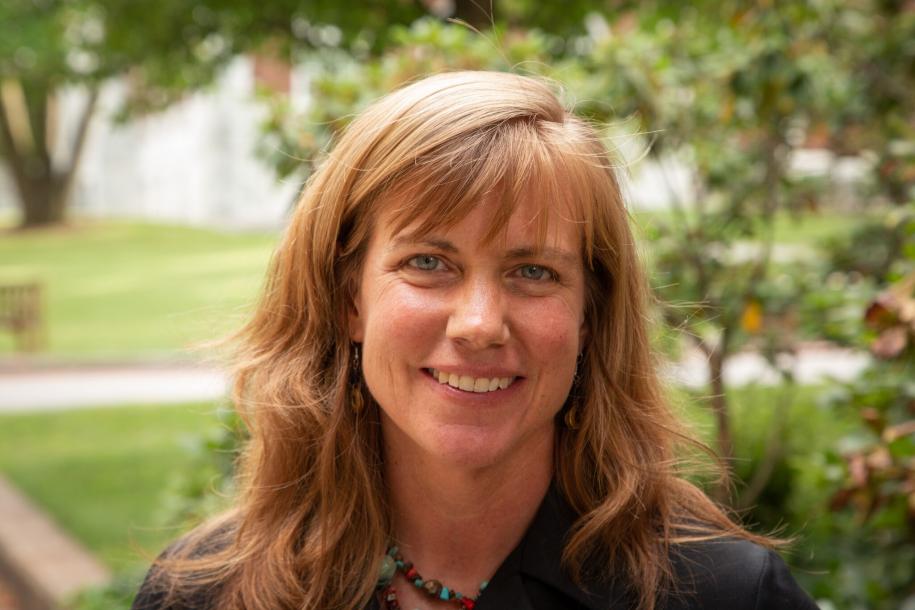
Breadcrumb
- Essential Partners
- Our Impact
- News and Notes
- Dialogue in the Classroom: an interview with Jill DeTemple
Dialogue in the Classroom: an interview with Jill DeTemple

Can we make space in the classroom for students to develop convictions—identify what they believe, understand why they believe it, and become willing to share it—while simultaneously inviting them to hold those convictions with humility—an openness, curiosity, and willingness to listen to others?
Dialogue in the classroom has been shown to deepen learning, improve student retention, and strengthen interpersonal connections. It can also help students strike that balance between humility and conviction, a balance that is crucial not only to intellectual rigor but also to the functioning of a diverse free society.
For the past three years, Essential Partners has been working with a team of faculty across the United States to identify effective dialogue techniques, design classroom exercises, and build model syllabi in a variety of disciplines.
One of the lead partners on this project is Dr. Jill DeTemple, Associate Professor of Religious Studies at Southern Methodist University in Dallas, Texas. Her research focuses on religiously sponsored development in Latin America, Pentecostalism, and use of dialogue in higher education. She is also the recipient of the American Academy of Religion 2018 Excellence in Teaching Award. Jill took a few moments to speak with us about the impact of bringing Essential Partners' dialogue framework to the classroom.
Danielle Isbell: Thank you so much for taking the time to talk with me. I'm wondering, first, whether and how your teaching style has changed since you began working with Essential Partners.
Jill DeTemple: I am more willing, and more able, to engage students in meaningful conversations about potentially contentious issues.
Whereas I used to nod toward things like homosexuality in religious life, interfaith marriage, or the role of government in reproduction, now I build these conversations into the class so students can learn to speak about their experiences, and so they learn to listen and learn from those with whom they might disagree.
How are educators uniquely positioned to teach young people how to hold intellectual humility and personal conviction together?
College classes are, ideally, spaces of curiosity and exploration. Really great classes start with intriguing questions, and dialogue is a way of exploring those questions with curiosity.
One thing I’ve noticed in using dialogue is that students often know that they have a position about something, but they don’t always know why. Dialogues help them articulate their convictions, even as they develop skills in listening to and considering positions that may differ from their own.
These are valuable critical thinking skills that also help students consider course content in new and deeper ways.
In your opinion, does EP’s approach to dialogue (Reflective Structured Dialogue) create space for both humility and conviction in the classroom? If so, how?
Dialogue allows us to introduce humility and conviction as values and then give students tools for enacting those values.
I’ve noticed that students in the classes where I’ve used dialogue make a conscious effort to listen with resilience, and to speak about their own experiences instead of just repeating talking points. They are more likely to say that they don’t know something, and also more likely to ask a question when they need an answer.
Knowing what you don’t know is my definition of humility, and being able to find and answer and explain it is conviction. Students in my dialogue classes get practice at both.
What has surprised you about the way your work with Essential Partners has influenced your teaching or the classroom dynamics?
The biggest surprise for me is the way dialogues help students think more deeply about course content. Students report that the dialogues help them understand things like religious theory better, and I’ve seen evidence of this in better papers and exams.
I suspect this happens because dialogues allow students to connect experience to content in deep and compelling ways, but we’ll need to do more research to figure that out.
How has your work with Essential Partners affected the student experience in your classroom?
A student from my upper-level seminar on Religion, Gender, and Development wrote this in a discussion post and I think it sums up the impact of dialogue in the classroom.
“Before this class, especially in college," they said, "I wouldn’t really let anyone around me know what religion I was or what viewpoints I believed because I was scared. But I’ve learned that no matter what viewpoint or religion everyone is insecure and that became clear to me. Learning what different philosophers perceived about religion, gender, and development helped me firm my base even more. Thank you.”
Interested in learning more? Visit the Higher Education section of our website or register for our next Faculty Workshop.